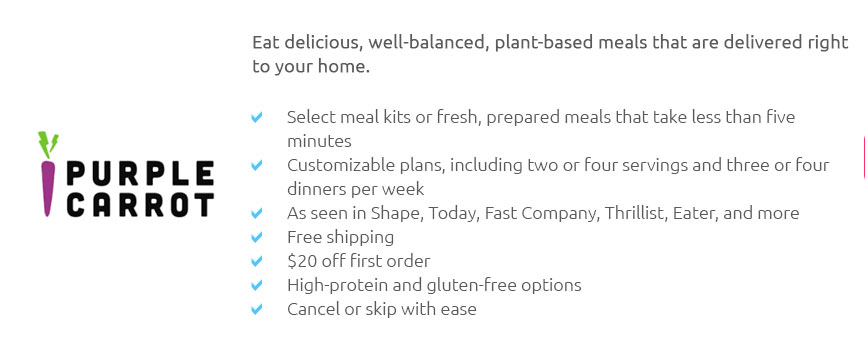 |
 |
 |
|---|
 |
|---|
 |
||||||
|---|---|---|---|---|---|---|
|
||||||
 |
 |
|||||
 |
 |
|||||
 |
 |
|||||
 |
 |
|||||
 |
 |
|||||
 |
 |
|---|
Exploring the Convenience and Benefits of Gluten-Free Home Delivery Meal PlansIn today's fast-paced world, where time is often of the essence, many individuals are turning towards more convenient options for their daily meals, particularly when dietary restrictions come into play. Among these options, gluten-free home delivery meal plans have emerged as a popular choice for those with gluten intolerance or celiac disease, as well as for individuals who simply prefer a gluten-free diet for personal reasons. These meal plans offer a hassle-free way to enjoy delicious, nutritious meals without the worry of gluten exposure. One of the key advantages of opting for a gluten-free meal delivery service is the sheer convenience it provides. Busy professionals, students, or parents juggling multiple responsibilities often find it challenging to prepare healthy meals from scratch. With a subscription to a meal delivery service, meals are curated by culinary experts and nutritionists, ensuring that they are not only gluten-free but also balanced and flavorful. The meals arrive at your doorstep, saving you precious time on grocery shopping and meal preparation. Variety is another significant aspect of these meal plans that appeals to many. Most gluten-free meal delivery services offer a wide range of cuisines and dishes, ensuring that you don't fall into a repetitive meal routine. Whether you're craving Italian, Asian, or classic American cuisine, there's likely a meal plan that caters to your taste buds. Additionally, these services often provide options to customize your meals based on dietary preferences, such as vegetarian, vegan, or low-carb, which further enhances the appeal for those with specific dietary goals. However, as with any service, there are considerations to keep in mind. Cost can be a factor, as these meal plans can be more expensive compared to cooking at home, especially if you're opting for high-end or organic ingredients. It’s crucial to weigh the convenience and time saved against the financial investment. Moreover, while the majority of services ensure their meals are free from gluten cross-contamination, it's always advisable to thoroughly research and choose a reputable provider that adheres to strict safety standards, especially for those with severe gluten sensitivity. Environmental impact is another point worth mentioning. Many meal delivery services have taken steps to incorporate sustainable practices, such as using recyclable packaging and sourcing ingredients from local farms to reduce their carbon footprint. However, consumers should be mindful of the packaging waste that can accumulate and seek services that are committed to minimizing environmental impact. In conclusion, gluten-free home delivery meal plans offer a plethora of benefits, from convenience and variety to dietary customization and safety for those with gluten intolerance. While there are considerations such as cost and environmental impact to take into account, the overall experience can greatly enhance one's quality of life by removing the stress of meal planning and preparation. As more people embrace these services, it becomes increasingly important to choose wisely, ensuring that the meals are not only satisfying and delicious but also aligned with one’s health and ethical standards. https://www.tasteofhome.com/collection/gluten-free-meal-kits/?srsltid=AfmBOop2rzVIz7JQvHkGxZnDPgNaRgT7JugIWp7gR7eH11YIaHSbIvvn
Which meal kit service is best for gluten-free food? The best options for gluten-free meals are Green Chef, Marley Spoon, BistroMD and Dinnerly. https://sunbasket.com/meal-plans/gluten-free/?srsltid=AfmBOoqieykvjt48iE9nB8nF3APiMjBt2o6F-ILCOVjNNs38b1_dLbFf
In our Gluten-Free Friendly meal plan, Sunbasket includes an abundance of nutrient-rich organic fresh produce, wild-caught or sustainably raised seafood, ... https://www.epicured.com/?srsltid=AfmBOoo-EULXw44Svc47RyEJYbCIZLySQvfOhrNaJimxj2Dyg5V9kjmv
Epicured delivers gourmet low-FODMAP, gluten-free meals by chefs for digestive health. Tasty cuisine right to your door.
|
|---|


